
Fueiceel® Research Grade MEA CO2 Stack (25cm2/unit, Serpentine Flow Field) is a specialized device designed for the electrochemical conversion of carbon dioxide (CO2) into carbon monoxide (CO). This technology is pivotal in carbon capture and utilization (CCU) strategies, providing a sustainable pathway to produce CO, a valuable industrial feedstock. The MEA electrolyzer, equipped with an Anion Exchange Membrane (AEM), is particularly suited for research purposes, allowing detailed studies on CO2 reduction reactions (CO2RR) and the development of efficient catalysts.
![]() Test Report - CRRMEA5a #0167 Signed.pdf
Test Report - CRRMEA5a #0167 Signed.pdf
A complete electrolyzer with MEA in it and a test report can be provided if requested. A testing cost will apply on the complete electrolyzer.
Partial reference
Adv. Energy Mater. Tailoring Microenvironments and In Situ Transformations of Cu Catalysts for Selective and Stable Electrosynthesis of Multicarbon Products (CRRMEA5a, Sci-Materials Hub)
Angew pH-Universal Electrocatalytic CO2 Reduction with Ampere-level Current Density on Doping-engineered Bismuth Sulfide (CRRMEA1a 1cm2 MEA electrolyzer, Figure 4d)
Chem Identification of Cu0/Cu+/Cu0 interface as superior active sites for CO2 electroreduction to CO2+ in neutral condition (CRRMEA1a, Figure S34)
The operation of the research-grade MEA electrolyzer hinges on the electrochemical reduction of CO2 at the cathode, driven by an external power source. The key steps involved in this process include:
- CO2 Supply: CO2 gas is introduced into the cathode compartment, where it interacts with a catalyst specifically designed to facilitate the reduction of CO2 to CO.
- Cathode Reaction: At the cathode, CO2 molecules are reduced by accepting electrons, resulting in the formation of CO. This reaction is supported by the flow of electrons from the external circuit.
- Anode Reaction: Concurrently, at the anode, water (H2O) molecules are oxidized to produce oxygen (O2) gas, protons (H+), and electrons. The electrons are transferred through the external circuit back to the cathode, while hydroxide ions (OH-) formed at the cathode migrate through the Anion Exchange Membrane (AEM) towards the anode.
- Ion Transport: The AEM plays a crucial role by allowing the migration of OH- ions from the cathode to the anode, maintaining the ionic balance within the cell and ensuring continuous operation.
Cathode Reaction (CO2 Reduction): At the cathode, CO2 is electrochemically reduced to CO, with the formation of hydroxide ions (OH-)
Anode (Oxygen Evolution Reaction - OER): In an alkaline environment, hydroxide ions are oxidized to produce oxygen, water, and electrons.
- High Selectivity: The MEA electrolyzer is engineered to achieve high selectivity for CO production, minimizing the formation of other byproducts.
- Advanced Catalysts: The complete Fueiceel® electrolyzer is equipped with state-of-the-art catalysts, often utilizing metals such as silver (Ag) or gold (Au), which are known for their high efficiency and selectivity in the reduction of CO2 to CO.
- Anion Exchange Membrane (AEM): The AEM is integral to the system, facilitating the transport of hydroxide ions from the cathode to the anode, which is crucial for maintaining the cell’s charge balance and overall efficiency.
- Compact Design: The electrolyzer’s compact and modular design makes it ideal for laboratory settings, allowing for easy integration into various experimental setups and enabling the testing of different catalysts and operational parameters.
- Real-time Monitoring: The Fueiceel® electrolyzer can be connected to elechemical devices (e.g. electrochemical station, DC power, gas chromatography & Gas mass flow meter etc) for real-time monitoring of key parameters such as voltage, current, CO2 flow rate, and product composition, aiding in precise control and analysis.
- System Setup: Connect the CO2 gas supply to the cathode compartment using appropriate tubing. Ensure the anode compartment is supplied with deionized water to facilitate the oxidation reaction. Verify that all connections are secure and that there are no leaks.
- Initial Checks: Power on the system and ensure that all monitoring equipment is operational. Adjust the CO2 and electrolyte flow rates according to your experimental requirements.
- Operating the Electrolyzer: Set the power supply to the desired initial voltage, typically around 2.5-3.0 V.
Gradually increase the current while monitoring the voltage, ensuring it remains within the optimal range for CO production. Allow the electrolyzer to reach stable operating conditions, which may take some time depending on the conditioning of the membrane and catalysts.
- Data Collection: Continuously monitor CO production at the cathode using gas chromatography or other suitable analytical methods. Record operational data such as cell voltage, current, and gas flow rates for analysis.
- Shut Down: Gradually reduce the current to zero before switching off the power supply. Disconnect the gas and water supply lines, and if necessary, purge the system with an inert gas (e.g., nitrogen) to remove any residual reactive gases. Clean the electrolyzer components according to the manufacturer’s instructions to ensure their longevity and performance in future experiments.
Fueiceel® Research Grade MEA CO2 Stack (25cm2/unit, Serpentine Flow Field) is a critical tool for advancing the study of CO2 reduction technologies, contributing to the development of sustainable carbon capture and utilization strategies.
| Accessories | ||||
Product image |
Corrosion resistant stainless steel end plate |
Corrosion resistant titanium end plate |
Stainless steel observable end plate | |
| Gasket | PTFE anode gasket (100/200/250/300/400/500/1000μm) (USD$23/each) | PTFE cathode gasket (100/200/250/300/400/500/1000μm) (USD$23/each) | FKM anode gasket (100/200/250/300/400/500/1000μm) (USD$23/each) | FKM cathode gasket (100/200/250/300/400/500/1000μm) (USD$23/each) |
| Tube |
PE tube (ID1/16" OD1/8") (USD$2/m) |
Silicone tube (ID1.6mm/OD4.8mm) (USD$2/m) |
Teflon tube (ID1/16" OD1/8") (USD$10/m) |
tube (ID1.6mm/OD4.8mm) (USD$50/m) |
| Connectors |
ABS bolts (ID1/8"), $10/set |
PTFE bolts (ID1/8"), $15/set |
PTFE bolts (ID1/8"), $20/set |
Nickel bolts (ID1/8"), $20/set |
| Others | 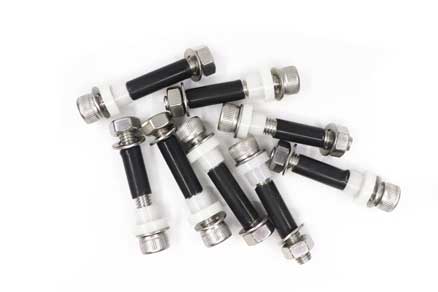 Tighten insulation set (FKM), USD10/pc |
SS springs, $2/set |
Torque wrench with sleeve (1-25 Nm), $100/set | |
25A High current DC electrical lead pair - Alligator Clip $10/pair/0.5m; $15/pair/1m $20/pair/1.5m; $25/pair/2m |
25A High current DC electrical lead pair - Banana plug to Alligator Clip $10/pair/0.5m; $15/pair/1m $20/pair/1.5m; $25/pair/2m |
35A High current DC electrical lead pair - Banana plug to Alligator Clip $15/pair/0.5m; 20/pair/1m $25/pair/1.5m; $30/pair/2m |
40A High current DC electrical lead pair - Ring to Ring $20/pair/0.5m; 25/pair/1m $30/pair/1.5m; $35/pair/2m | |
Temperature controller, $699 (Accuracy: 0.1°C) | Heating pads ($180/pair) Heating pad binder, $50/25ml |
Wrench kit, $10/set | ||
VHP01 vacuum heater | A simple system for electrolyte circulation and gas-liquid separation, $500 | Small peristaltic pump, $300/pc Standard peristaltic pump, $400/pc Standard peristaltic pump with two channels, $700/pc Gear pump, $700/pc | DC power supply with data recording, storage, and export functions | |
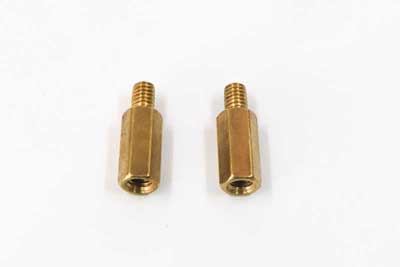 Cu conductors, $1/set |
PP isodiametric barbed hose connector Hose IDΦ1-Φ1.6mm, USD$2/pc Hose IDΦ1.6-Φ2.4mm,USD$2/pc Hose IDΦ2.4-Φ3.2mm,USD$2/pc Hose IDΦ3.2-Φ4mm, USD$2/pc |
PP barbed connector for variable diameter hoses Hose IDΦ1.6↔Φ2.4, USD$2/pc Hose IDΦ1.6↔Φ3.2,USD$2/pc Hose IDΦ2.4↔Φ3.2, USD$2/pc Hose IDΦ2.4↔Φ4,USD$2/pc Hose IDΦ3.2↔Φ4, USD$2/pc |
PE isodiametric quick connector Tube ODΦ3-Φ3mm, USD$2/pc Tube ODΦ3.2-Φ3.2mm,USD$2/pc Tube ODΦ4-Φ4mm, USD$2/pc Tube ODΦ6-Φ6mm,USD$2/pc | |
PE quick connector for variable diameter tubes Tube ODΦ3-Φ3.2mm, USD$2/pc Tube ODΦ3-Φ4mm, USD$2/pc Tube ODΦ3-Φ5mm, USD$2/pc Tube ODΦ3-Φ6mm, USD$2/pc Tube ODΦ3.2-Φ4mm, USD$2/pc Tube ODΦ3.2-Φ6mm, USD$2/pc | 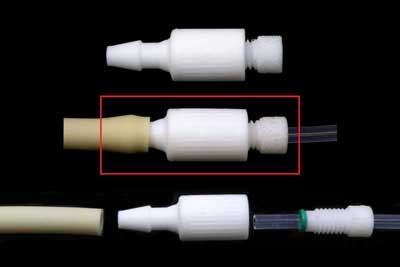 PTFE corrosion-resistant hose/tube adapter Tube ODΦ3.2mm↔hose IDΦ1.6mm, USD$10/pc Tube ODΦ3.2mm↔hose IDΦ2.4mm, USD$10/pc Tube ODΦ3.2mm↔hose IDΦ3.2mm, USD$10/pc Tube ODΦ3.2mm↔hose IDΦ4mm, USD$10/pc |
PTFE corrosion-resistant isodiametric tube connector Φ3mm↔Φ3mm, USD$10/pc Φ3.2mm↔Φ3.2mm, USD$10/pc Φ4mm↔Φ4mm, USD$10/pc Φ6mm↔Φ6mm, USD$15/pc Φ8mm↔Φ8mm, USD$15/p |
PTFE corrosion-resistant connector for variable diameter tubes Φ3mm↔Φ3.2mm, USD$15/pc Φ3mm↔Φ4mm, USD$15/pc Φ3mm↔Φ6mm, USD$15/pc Φ3.2mm↔Φ4mm, USD$15/pc Φ4mm↔Φ6mm, USD$15/pc | |
316L SS isodiametric tube connector Φ3mm↔Φ3mm, USD20/pc Φ3.2mm↔Φ3.2mm, USD20/pc Φ4mm↔Φ4mm, USD20/pc Φ6mm↔Φ6mm, USD20/pc Φ8mm↔Φ8mm, USD20/pc | 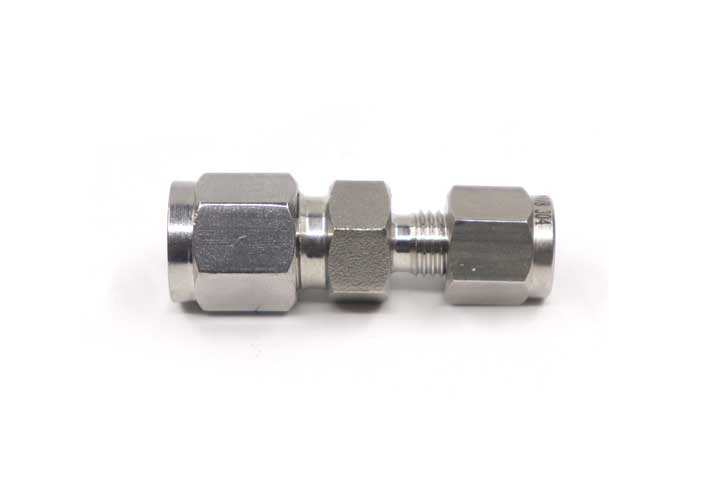 316L SS connector for variable diameter tubes Φ3mm↔Φ3.2mm, USD30/pc Φ3mm↔Φ4mm, USD30/pc Φ3mm↔Φ6mm, USD30/pc Φ4mm↔Φ6mm, USD30/pc |
Humidifier, $72 |
Humidifier, $24 | |
| Consumables | ||||
Anion exchange membrane | Sustainion X37-50 Grade RT Sustainion X37-50 Grade 60 | PiperION A10R / A15R / A22R PiperION A13 / PiperION A17 PiperION A20 / PiperION A25 | NexIonic A20 | |
| Ionomer | Sustainion XA-9 powder Sustainion XA-9 powder Sustainion XC-1 dispersion liquid Sustainion XC-2 dispersion liquid | PiperION-A TP-85 powder PiperION A5 dispersion liquid | Fumion FAA-3-SOLUT-10 Fumion FAA-3 5wt% in ethanol | Nafion D520 dispersion liquid Nafion D521 dispersion liquid Nafion D2020 dispersion liquid Nafion D2021 dispersion liquid |
Gas diffusion layer | Youveim® Ni fiber paper | DM SS fiber paper Youveim® SS fiber paper | DiffuCarb® CP-A210R raw carbon paper DiffuCarb® CP-A330R raw carbon paper DiffuCarb® CP-A400R raw carbon paper DiffuCarb® CP-H450R raw carbon paper DiffuCarb® CP-H850R raw carbon paper | Youveim® Ti fiber paper Youveim® Ti screen Youveim® Platinized Ti fiber paper Youveim® Platinized Ti screen |
Anode Electrodes | IrO2 | |||
| DM IrO2-carbon paper DiffuCarb® E300 IrO2-carbon paper DiffuCarb® E300T IrO2-carbon paper with hydrophobic interface DiffuCarb® E300H IrO2-carbon paper with hydrophilic interface | Youveim® E301T IrO2-SS fiber paper with hydrophobic interface Youveim® E301H IrO2-SS fiber paper with hydrophilic interface Youveim® E301PT IrO2-Platinized SS fiber paper Youveim® E301G IrO2-Gold Plated SS fiber paper | |||
Youveim® E303T IrO2-Ti fiber paper with hydrophobic interface Youveim® E303H IrO2-Ti fiber paper with hydrophilic interface Youveim® E303PT IrO2-Platinized Ti fiber paper Youveim® E303G IrO2-Gold Plated Ti fiber paper | Youveim® E305T IrO2-Nickel fiber paper with hydrophobic interface Youveim® E305H IrO2-Nickel fiber paper with hydrophilic interface Youveim® E305PT IrO2-Platinized Nickel fiber paper Youveim® E305G IrO2-Gold Plated Nickel fiber paper | |||
Youveim® E309 IrO2/Ti fiber paper Youveim® E310 IrO2/Platinized Ti fiber paper Youveim® E311 Pt-IrO2/Platinized Ti fiber paper | Youveim® E314 IrO2/Ti screen Youveim® E315 IrO2/Platinized Ti screen Youveim® E316 Pt-IrO2/Platinized Ti screen | |||
| Youveim® E320 IrO2/Ti foam Youveim® E321 IrO2/Platinized Ti foam Youveim® E322 Pt-IrO2/Platinized Ti foam | ||||
DiffuCarb® E330 Ir-carbon paper DiffuCarb® E330T Ir-carbon paper with hydrophobic interface DiffuCarb® E330H Ir-carbon paper with hydrophilic interface | Youveim® E340T Ir-Ti fiber paper with hydrophobic interface Youveim® E340H Ir-Ti fiber paper with hydrophilic interface Youveim® E341T Ir-Platinized Ti fiber paper with hydrophobic interface Youveim® E341H Ir-Platinized Ti fiber paper with hydrophilic interface | |||
Youveim® E343 Ir/Ti screen Youveim® E344 Ir/Platinized Ti screen Youveim® E345 Pt-Ir/Platinized Ti screen | Youveim® E347 Ir/Ti fiber paper Youveim® E348 Ir/Platinized Ti fiber paper Youveim® E349 Pt-Ir/Platinized Ti fiber paper | Youveim® E351 Ir/Ti foam Youveim® E352 Ir/Platinized Ti foam Youveim®E353 Pt-Ir/Platinized Ti foam | ||
Cathode electrodes | DM Ag - carbon paper DiffuCarb® E400 Ag - Carbon Paper | DM FA cell cathode electrode DiffuCarb® E410 FA cell cathode electrode | ||
For international orders, please ask us for quotes via
Email: contact@scimaterials.cn
Tel: +86 153-5789-9751
| Fueiceel® Research Grade MEA CO2 Stack (25cm2/unit, Serpentine Flow Field) - Technical Parameters | |||||||
| Model | CRRS25a-1cell | CRRS25a-2cell | CRRS25a-3cell | CRRS25a-5cell | CRRS25a-10cell | CRRS25a-15cell | CRRS25a-20cell |
| Size | 160x160x33mm | 160x160x37mm | 160x160x41mm | 160x160x49mm | 160x160x69mm | 160x160x89mm | 160x160x109mm |
| Stack No. | 1 | 2 | 3 | 5 | 10 | 15 | 20 |
| Voltage | 1.5-3 | 3-6V | 4.5-9V | 7.5-15V | 15-30V | 22.5-45V | 30-60V |
Image |
USD$1600 |
USD$1900 |
USD$2200 |
USD$2500 |
USD$2800 (Image not available) |
USD$3700 (Image not available) |
USD$4300 (Image not available) |
| The parameters in this table are based on the parallel assembly of stacks. The stacks can also be assembled in series or series-parallel coexistence structures. | |||||||
| Current density | 0.1-2A/cm2 | ||||||
| Flow Field Size | 50x50mm square serpentine (We recommend using slightly larger electrodes, such as 55x55mm, to avoid catalyst detachment and blockage of flow channel holes) | ||||||
End Plate Material | Corrosion resistant stainless steel (standard), epoxy (optional), PMMA (optional) Corrosion resistant titanium (+$400), gold-plated stainless steel (+$600), platinized titanium (+$600) | ||||||
| Flow Field Material | Titanium | ||||||
| Membrane | Anion exchange membrane (not included) | ||||||
| Electrode material | Ag (cathode)+IrO2 (anode), (not included) | ||||||
| Electrolyte | Alkali solution (KOH, KHCO3) | ||||||
Operating Temperature | 15-80 ℃ | ||||||
Partial references citing our materials (from Google Scholar)
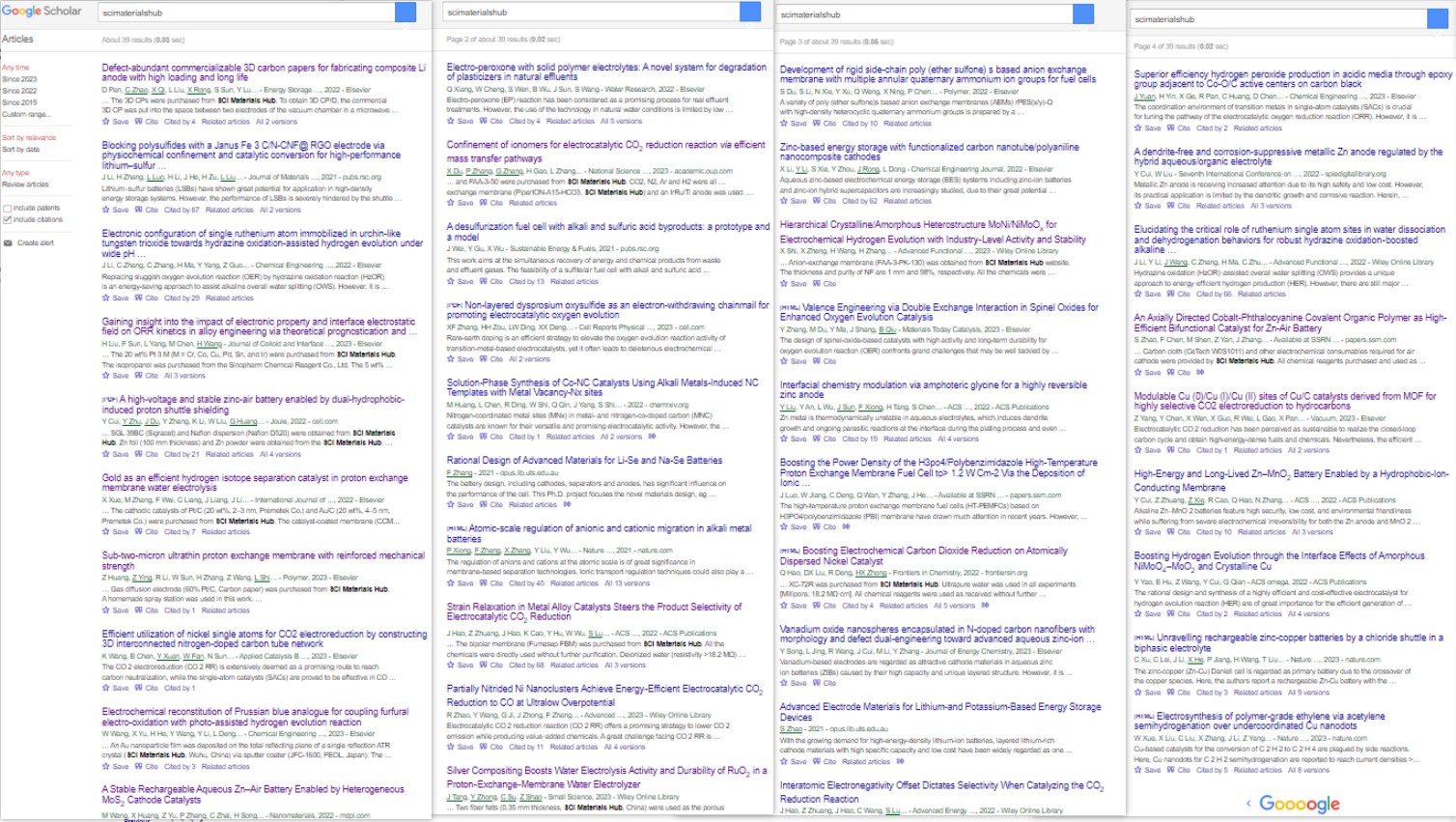
Carbon Dioxide Reduction
1. ACS Nano Strain Relaxation in Metal Alloy Catalysts Steers the Product Selectivity of Electrocatalytic CO2 Reduction
The bipolar membrane (Fumasep FBM) in this paper was purchased from SCI Materials Hub, which was used in rechargeable Zn-CO2 battery tests. The authors reported a strain relaxation strategy to determine lattice strains in bimetal MNi alloys (M = Pd, Ag, and Au) and realized an outstanding CO2-to-CO Faradaic efficiency of 96.6% with outstanding activity and durability toward a Zn-CO2 battery.
2. Front. Chem. Boosting Electrochemical Carbon Dioxide Reduction on Atomically Dispersed Nickel Catalyst
In this paper, Vulcan XC-72R was purchased from SCI Materials Hub. Vulcan XC 72R carbon is the most common catalyst support used in the anode and cathode electrodes of Polymer Electrolyte Membrane Fuel Cells (PEMFC), Direct Methanol Fuel Cells (DMFC), Alkaline Fuel Cells (AFC), Microbial Fuel Cells (MFC), Phosphoric Acid Fuel Cells (PAFC), and many more!
3. Adv. Mater. Partially Nitrided Ni Nanoclusters Achieve Energy-Efficient Electrocatalytic CO2 Reduction to CO at Ultralow Overpotential
An AEM membrane (Sustainion X37-50 Grade RT, purchased from SCI Materials Hub) was activated in 1 M KOH for 24 h, washed with ultra-purity water prior to use.
4. Adv. Funct. Mater. Nanoconfined Molecular Catalysts in Integrated Gas Diffusion Electrodes for High-Current-Density CO2 Electroreduction
In this paper (Supporting Information), an anion exchanged membrane (Fumasep FAB-PK-130 obtained from SCI Materials Hub (www.scimaterials.cn)) was used to separate the catholyte and anolyte chambers.
SCI Materials Hub: we also recommend our Fumasep FAB-PK-75 for the use in a flow cell.
5. Appl. Catal. B Efficient utilization of nickel single atoms for CO2 electroreduction by constructing 3D interconnected nitrogen-doped carbon tube network
In this paper, the Nafion 117 membrane was obtained from SCI Materials Hub.
In this paper, Proton exchange membrane (Nafion 117), Nafion D520, and Toray 060 carbon paper were purchased from SCI Materials Hub.
7. National Science Review Confinement of ionomer for electrocatalytic CO2 reduction reaction via efficient mass transfer pathways
An anion exchange membrane (PiperION-A15-HCO3) was obtained from SCI Materials Hub.
8. Catalysis Communications Facilitating CO2 electroreduction to C2H4 through facile regulating {100} & {111} grain boundary of Cu2O
Carbon paper (TGPH060), membrane solution (Nafion D520), and ionic membrane (Nafion N117) were obtained from Wuhu Eryi Material Technology Co., Ltd (a company under SCI Materials Hub).
Batteries
1. J. Mater. Chem. A Blocking polysulfides with a Janus Fe3C/N-CNF@RGO electrode via physiochemical confinement and catalytic conversion for high-performance lithium–sulfur batteries
Graphene oxide (GO) in this paper was obtained from SCI Materials Hub. The authors introduced a Janus Fe3C/N-CNF@RGO electrode consisting of 1D Fe3C decorated N-doped carbon nanofibers (Fe3C/N-CNFs) side and 2D reduced graphene oxide (RGO) side as the free-standing carrier of Li2S6 catholyte to improve the overall electrochemical performance of Li-S batteries.
This paper used more than 10 kinds of materials from SCI Materials Hub and the authors gave detailed properity comparsion.
The commercial IEMs of Fumasep FAB-PK-130 and Nafion N117 were obtained from SCI Materials Hub.
Gas diffusion layers of GDL340 (CeTech) and SGL39BC (Sigracet) and Nafion dispersion (Nafion D520) were obtained from SCI Materials Hub.
Zn foil (100 mm thickness) and Zn powder were obtained from the SCI Materials Hub.
Commercial 20% Pt/C, 40% Pt/C and IrO2 catalysts were also obtained from SCI Materials Hub.
3. Journal of Energy Chemistry Vanadium oxide nanospheres encapsulated in N-doped carbon nanofibers with morphology and defect dual-engineering toward advanced aqueous zinc-ion batteries
In this paper, carbon cloth (W0S1011) was obtained from SCI Materials Hub. The flexible carbon cloth matrix guaranteed the stabilization of the electrode and improved the conductivity of the cathode.
4. Energy Storage Materials Defect-abundant commercializable 3D carbon papers for fabricating composite Li anode with high loading and long life
The 3D carbon paper (TGPH060 raw paper) were purchased from SCI Materials Hub.
5. Nanomaterials A Stable Rechargeable Aqueous Zn–Air Battery Enabled by Heterogeneous MoS2 Cathode Catalysts
Nafion D520 (5 wt%), and carbon paper (GDL340) were received from SCI-Materials-Hub.
Carbon cloth (W0S1011) and other electrochemical consumables required for air cathode were provided by SCI Materials Hub.
Oxygen Reduction Reaction
1. J. Chem. Eng. Superior Efficiency Hydrogen Peroxide Production in Acidic Media through Epoxy Group Adjacent to Co-O/C Active Centers on Carbon Black
In this paper, Vulcan XC 72 carbon black, ion membrane (Nafion N115, 127 μL), Nafion solution (D520, 5 wt%), and carbon paper (AvCarb GDS 2230 and Spectracarb 2050A-1050) were purchased from SCI Materials Hub.
2. Journal of Colloid and Interface Science Gaining insight into the impact of electronic property and interface electrostatic field on ORR kinetics in alloy engineering via theoretical prognostication and experimental validation
The 20 wt% Pt3M (M = Cr, Co, Cu, Pd, Sn, and Ir) were purchased from SCI Materials Hub. This work places emphasis on the kinetics of the ORR concerning Pt3M (M = Cr, Co, Cu, Pd, Sn, and Ir) catalysts, and integrates theoretical prognostication and experimental validation to illuminate the fundamental principles of alloy engineering.
Water Electrolysis
1. International Journal of Hydrogen Energy Gold as an efficient hydrogen isotope separation catalyst in proton exchange membrane water electrolysis
The cathodic catalysts of Pt/C (20 wt%, 2–3 nm) and Au/C (20 wt%, 4–5 nm) were purchased from SCI Materials Hub.
2. Small Science Silver Compositing Boosts Water Electrolysis Activity and Durability of RuO2 in a Proton-Exchange-Membrane Water Electrolyzer
Two fiber felts (0.35 mm thickness, SCI Materials Hub) were used as the porous transport layers at both the cathode and the anode.
3. Advanced Functional Materials Hierarchical Crystalline/Amorphous Heterostructure MoNi/NiMoOx for Electrochemical Hydrogen Evolution with Industry-Level Activity and Stability
Anion-exchange membrane (FAA-3-PK-130) was obtained from SCI Materials Hub website.
Fuel Cells
1. Polymer Sub-two-micron ultrathin proton exchange membrane with reinforced mechanical strength
Gas diffusion electrode (60% Pt/C, Carbon paper) was purchased from SCI Materials Hub.
Characterization
1. Chemical Engineering Journal Electrochemical reconstitution of Prussian blue analogue for coupling furfural electro-oxidation with photo-assisted hydrogen evolution reaction
An Au nanoparticle film was deposited on the total reflecting plane of a single reflection ATR crystal (SCI Materials Hub, Wuhu, China) via sputter coater.

|
We Provide A Broad Range of Materials, Instruments & Solutions in Advanced Science and Technologies | About Us |



